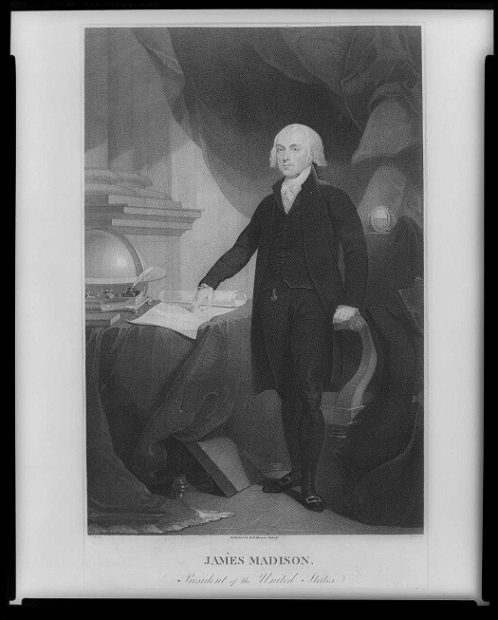James Madison, writing anonymously, in “A Memorial and Remonstrance Against Religious Assessments” (June 1785)

James Madison by Thomas Sully (Library of Congress)
Because we hold it for a fundamental and undeniable truth, “that Religion or the duty which we owe to our Creator and the manner of discharging it, can be directed only by reason and conviction, not by force or violence.” The Religion then of every man must be left to the conviction and conscience of every man; and it is the right of every man to exercise it as these may dictate. This right is in its nature an unalienable right. It is unalienable, because the opinions of men, depending only on the evidence contemplated by their own minds cannot follow the dictates of other men: It is unalienable also, because what is here a right towards men, is a duty towards the Creator. It is the duty of every man to render to the Creator such homage and such only as he believes to be acceptable to him.
Who does not see that the same authority which can establish Christianity, in exclusion of all other Religions, may establish with the same ease any particular sect of Christians, in exclusion of all other Sects? that the same authority which can force a citizen to contribute three pence only of his property for the support of any one establishment, may force him to conform to any other establishment in all cases whatsoever?
“A Memorial and Remonstrance Against Religious Assessments,” anonymously authored by James Madison and published on or about June 20, 1785, argues against a resolution by the House of Delegates, adopted on November 11, 1784, to levy a so-called General Assessment to benefit all Christian sects, including dissenters against the established Church of England. The resolution excited such opposition, and petitions like Madison’s such support, that Madison was emboldened to reintroduce Thomas Jefferson‘s Bill for Establishing Religious Freedom, which passed the General Assembly on January 16, 1786.
Source: Encyclopedia Virginia